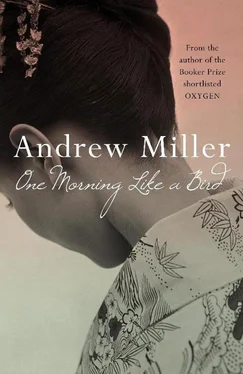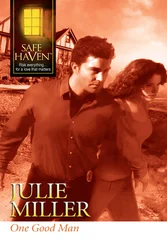Andrew Miller - One Morning Like a Bird
Здесь есть возможность читать онлайн «Andrew Miller - One Morning Like a Bird» весь текст электронной книги совершенно бесплатно (целиком полную версию без сокращений). В некоторых случаях можно слушать аудио, скачать через торрент в формате fb2 и присутствует краткое содержание. Год выпуска: 2009, Издательство: Sceptre, Жанр: Историческая проза, на английском языке. Описание произведения, (предисловие) а так же отзывы посетителей доступны на портале библиотеки ЛибКат.
- Название:One Morning Like a Bird
- Автор:
- Издательство:Sceptre
- Жанр:
- Год:2009
- ISBN:нет данных
- Рейтинг книги:4 / 5. Голосов: 1
-
Избранное:Добавить в избранное
- Отзывы:
-
Ваша оценка:
- 80
- 1
- 2
- 3
- 4
- 5
One Morning Like a Bird: краткое содержание, описание и аннотация
Предлагаем к чтению аннотацию, описание, краткое содержание или предисловие (зависит от того, что написал сам автор книги «One Morning Like a Bird»). Если вы не нашли необходимую информацию о книге — напишите в комментариях, мы постараемся отыскать её.
One Morning Like a Bird — читать онлайн бесплатно полную книгу (весь текст) целиком
Ниже представлен текст книги, разбитый по страницам. Система сохранения места последней прочитанной страницы, позволяет с удобством читать онлайн бесплатно книгу «One Morning Like a Bird», без необходимости каждый раз заново искать на чём Вы остановились. Поставьте закладку, и сможете в любой момент перейти на страницу, на которой закончили чтение.
Интервал:
Закладка:
Does Saburo approve, or is he just relieved not to have to send more money home? Even with his promotion, there won’t be much to spare after buying fur collars for himself and paying for studio portraits. The old woman takes in sewing, of course, in the season, but so do half the wives and widows in the city, there’s no money in it. It’s Kyoko who makes ends meet in that house, Kyoko with her cap and apron, her strong legs of a farmer’s daughter from Saitama Prefecture.
He leaves the gateway and turns for home, feeling something awkward, something more difficult than his usual sly pleasure in harming an absent enemy, the usual uncomplicated interest he takes in that tight, sturdy body under the winter coat. But it’s not until he’s passing the university library, where a lone light burns feebly against the brightening sky, that he realises he has started to respect her. It startles him. He cannot believe he ever really intended to fall in love with her, this wife of a man he has never stopped being frightened of. And yet how interesting it is, how poetic, to think that he might !
6
When Yuji arrives at the office — a rented room above a bicycle repair shop in the Hibiya district — Horikawa is sitting at his desk speaking on the telephone. He is also doing calculations on the sorobon , smoking a cigarette (Airship brand), picking at his breakfast rice, glancing at the racing pages of the paper and waggling a finger to welcome his visitor. His feet are hidden by the clutter under the desk but Yuji wonders if he might be doing other things with his toes, a little typing perhaps, some filing. No one else he has ever met can perform as many tasks simultaneously, and perform them well, for the calculations will all be correct, no rice will be spilt and the good horses will be sorted from the bad. So remarkable is this talent it’s generally agreed that he would, by now, have his own building in the Marunouchi were it not for certain bad stars that gave him a son, Yuji’s age, who staggers through the house moaning and drooling, a wife, a third the husband’s size, with a taste for brandy, and in his chest a swollen heart that now and then lingers between beats, so that — terrifying to those who have witnessed it — he sometimes halts mid-stride in the street, suspended between two worlds, the living and the dead.
He points to the bench by the door. Yuji sits. On the wall opposite the bench, a wall that on his last visit still had a framed photograph of Tokyo Central on it (a view from Nihombashi before the earthquake, the station’s dome and towers on the far side of the tracks that separated it from the Low City), there is now a map of Japan, like the ones they used to have at school. Red dots and red circles for the towns and cities, the country the colour of flypaper, the sea an unbroken blue. One of the pins holding the bottom of the map has fallen out and the paper has rolled upwards, giving the country a curled tail like a smoked fish. While Horikawa talks, and the wooden beads of the sorobon click, Yuji counts off the dots and circles he has been to outside of Tokyo: Kyoto and Nara on visits to Uncle Kensuke; Snowy Akita on trips to Grandfather Yakumo and Aunt Togashi, both long dead now; Yokohama — which hardly merits inclusion on such a list — to look at the foreigners, to look at the liners, to make (once) an outing to a certain place behind the docks, an afternoon he would prefer to forget about; and Kamakura, where on family holidays they used to rent a villa in the hills and spend two weeks of the summer, holidays whose heat and flavour are now just a clutch of mental postcards — Father on the beach with a towel round his head, reading a newspaper, Mother in a polka-dot swimsuit, Ryuichi eating watermelon, the juice running off his chin.
As for anywhere beyond the black lines marking the coasts of the islands, there is nothing. Father, at his age, or a little older, was preparing to set sail for Marseille, the beginning of a six-month tour of British and European universities — Mother, who now travels only to the bathroom or, on rare occasions, into the garden, lived a whole year in Korea when Grandfather Yakumo was teaching at the Christian college in Seoul. But for himself, he finds it hard to believe he will ever do more than add a red circle or two to his collection. And anyway, these days leaving Japan means leaving in a uniform on your way to China. .
When Horikawa puts down the telephone he pays Yuji out of the petty-cash tin, then lights the spirit burner in the corner of the room and makes them both some coffee. The morning is bright. Despite the cold, they sit at the open window watching trains cross the railway bridge. Horikawa knows them all, each engine’s destination, and points them out for Yuji with the tip of his cigarette, speaking of them as if they were old friends leaving for the country but whose return was promised.
To Yuji’s question about more work he answers with a grimace. The West Japan Shipping piece, he says, was well received. The vice president’s assistant had his secretary call to say how pleased they were. But business almost everywhere was slow. It was the time of year. It was the international situation. War was always good fortune for someone — a skilled worker in heavy industry could get all the overtime he wanted — but for others . . ‘Take your Monsieur Feneon, for example. Silk brokers like him can’t rely on the old markets any more. How much Japanese silk will there be on the catwalks of Paris this spring? These days—’ He stops, leans to the window. ‘Ah, engine two hundred and seventy-one. She’s for Nagoya. These days you need to know someone in the government. Someone who can hand out a nice fat contract. If I was in Feneon’s line, I’d go to the War Ministry and talk about parachutes.’
‘Parachutes?’
‘They’re made of silk, aren’t they? Even with our airmen’s indomitable spirit I expect they still like to take off with a parachute on their backs.’
Yuji, who has long wished to be of service to Feneon, to repay his many kindnesses and show that he is not only a loyal friend but someone whose thinking can have practical as well as merely intellectual outcomes, is immediately struck by the brilliance of the idea.
‘Should I suggest it?’ he asks. ‘Do you know someone who could help?’
‘I was . .’ says Horikawa widening his eyes, ‘. . . I mean, do you really think the government would employ a Frenchman to make parachutes for us?’ He starts to giggle. ‘We might, while we’re at it, ask the Americans to make our gun sights.’
‘But we’re not at war with France. Or with America for that matter.’
‘Well, it’s true . .’
‘And Monsieur Feneon’s been here for years! Everyone knows him. You know him. His daughter walks around in kimonos. She takes classes in classical dance.’
‘The lame girl?’ At this, Horikawa begins to wheeze. He presses a hand to his chest, then tugs from his jacket pocket a large handkerchief and carefully, starting at the brow and working down to his throat, wipes the shine from his face. Horikawa sweats winter and summer, an oozing that carries the not unpleasant smell of the preparations he takes for his heart, those bitter teas of roots and fungi harvested in remote mountain forests. ‘Perhaps she really thinks she is Japanese, but it will take more than kimonos and being able to dance Flowers of the Four Seasons to persuade the gentlemen at the ministry. But don’t worry. Feneon’s an old hand. He’ll use his contacts in Indochina. Move back into tobacco or rubber. He’ll know what to do.’
He asks Yuji to stay and play a game of shogi with him, but Yuji, who has not enjoyed being laughed at, invents a vague appointment, excuses himself, and leaves the office. In the repair shop below, the mechanic in his oil-grimed leggings is squatting on the floor with a bicycle wheel in his hands, holding it up like a type of old-fashioned sun-sight. He nods to Yuji, calls out a tradesman’s bright good morning. Yuji nods back, takes in, in a single glance, the cluttered workshop, and walks towards the palace moat thinking how hard it is not to become at last like everyone else, not to lose, as one grows older, all delicacy of response. Horikawa, for example, is a clever man, but he is too cynical, too interested in money, too sunk in the narrow ambitions of commerce. Feneon, of course, is also interested in money, but Feneon knows literature, knows art, while Horikawa knows — what? Trains, racehorses. Is that how you protect yourself? By reading? By listening to music? Or does the world exert an ineluctable force that only the most exceptional can resist? And is he one of them? Is he exceptional?
Читать дальшеИнтервал:
Закладка:
Похожие книги на «One Morning Like a Bird»
Представляем Вашему вниманию похожие книги на «One Morning Like a Bird» списком для выбора. Мы отобрали схожую по названию и смыслу литературу в надежде предоставить читателям больше вариантов отыскать новые, интересные, ещё непрочитанные произведения.
Обсуждение, отзывы о книге «One Morning Like a Bird» и просто собственные мнения читателей. Оставьте ваши комментарии, напишите, что Вы думаете о произведении, его смысле или главных героях. Укажите что конкретно понравилось, а что нет, и почему Вы так считаете.












